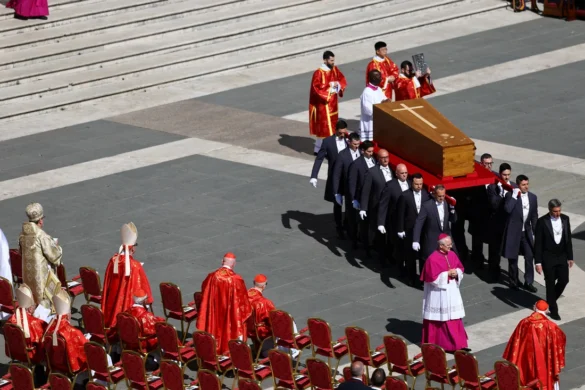The European Union, United Nations and African Union have agreed to an emergency plan to dismantle people smuggling networks and repatriate stranded migrants in an effort to ease a human rights disaster in Libya, officials said.
Details of the strategy were negotiated at an African Union-European Union summit that opened on Wednesday in Ivory Coast, and the plan was expected to be finalised on Thursday.
Images broadcast by CNN earlier this month appearing to show migrants auctioned off as slaves by Libyan traffickers has sparked outrage in Europe and anger in Africa. It shone a light on abuses committed against African migrants seeking to reach Europe, forcing the issue to the top of the agenda of a summit meant to focus on Africa’s youth.
European Council President Donald Tusk called the slavery reports “horrifying” during the summit’s opening ceremony and said the issue of migration was a joint responsibility of European and African governments.
French President Emmanuel Macron said late on Wednesday that the plan included the establishment of an “operational task-force” composed of European and African police and intelligence services.
“The goal will be in very short order to be able to arrest identified traffickers, dismantle these networks and their financing which goes through banks and payments that in the region contribute … to sustaining terrorism,” he said.
The plan emerged from a meeting of UN officials, EU leaders and government representatives from Chad, Niger, Morocco, Congo and Libya that was called by France on Wednesday.
The European Union, African Union and United Nations agreed to asset freezes and financial sanctions on known smugglers.
Libya’s government, which has promised to investigation reports of slave auctions, agreed to grant U.N. agencies access to migrant camps in areas under its control, German officials said.
EU countries meanwhile agreed to finance the repatriation of migrants from Libya, a process that is already being organised by the International Organization for Migration, they said.
Vulnerable migrants that might eventually qualify for asylum will be brought to Chad or Niger before being relocated to a third country either in Europe or another region.




